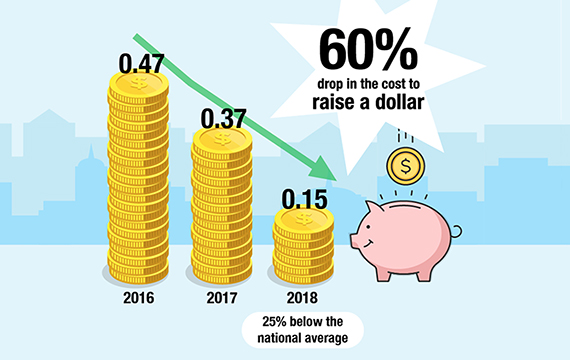The Pros and Cons of Co-op Marketing – and How to Avoid the Pitfalls
Co-op marketing isn’t always a perfectly smooth process, but with some due diligence, pre-planning and quality communication, you can flip the challenges into benefits.
Co-op Marketing: Answers to Common Questions
Cooperative marketing is a strategy that can benefit businesses of various sizes in many different types of industries. You likely see examples of it all around you, but might not recognize it as co-op marketing or think about the many steps required to launch a cooperative marketing campaign.
What Is Co-op Marketing, and How Can It Increase Sales?
Co-op marketing, or cooperative marketing, can be a win-win for two or more partnering organizations.
Data Leakage Protection: How to Boost Security and Employ Successful Marketing Strategies
Organizations hoping to boost their brands and increase their ROI may be concerned about the security of their data, especially considering all the different ways data can be leaked today. It is possible, however, to employ data leakage protection strategies and effectively market your brand at the same time; you just have to be careful about who has access to the data.
Looking for a Regulatory Compliance Communications Provider? Here are a Few Qualities That Will Help
Marketing for healthcare practices, schools and nonprofit organizations requires unique and innovative approaches. Promoting these organizations and helping them maintain relationships with existing patients, students or donors requires a gentle balance between data-based insights, personalization and a strong focus on protecting their sensitive information.
What is HITRUST Certification and Why Does It Matter So Much for Healthcare Marketing?
As a healthcare professional, you most certainly are familiar with the Health Insurance Portability and Accountability Act (HIPAA), as well as regulations you must follow according to the rule. However, HITRUST is not as well-known, so you may be asking yourself, “What is HITRUST certification anyway, and how does it affect me, my practice and our marketing efforts?”
Patient Acquisition, HIPAA and Google Analytics: How Direct Response Marketing Can Address Digital Advertising Challenges
Digital advertising is not what it used to be, especially in the healthcare industry.
Digital Tracking Technologies and HIPAA Regulations
The Health Insurance Portability and Accountability Act (HIPAA) has been in place to protect patients since 1996, but technology and personal data access has expanded exponentially since then. Today, digital tracking technologies and other online communications can create a “fingerprint” or digital ID of a person’s healthcare digital interactions, which expose sensitive information that has allowed some marketers to leverage this private data to achieve their objectives.
HITRUST Certification and Marketing Solutions: Security Protocols that Enhance Insurance and Medical Clients’ Peace of Mind
Medical practices and insurance companies can face devastating ramifications when private data is released due to data breaches, including thousands of dollars in fines, millions of dollars in business loss, diminishing of the business’s reputation and the stress of having patients’ health care information compromised.
HITRUST Compliance: Our Commitment to Your Data Security
Did you know that a cyber attack happens every 39 seconds? This disturbing fact illustrates why earning HITRUST CSF® Certification is such an important accomplishment for Phoenix Innovate (PI).
For Hard-Hit Healthcare Recruiters, a Few Solutions Offer Hope
The healthcare industry in America is facing an extraordinary staffing crisis. A 2021 Mercer study forecasts a shortage of nearly 450,000 home health aides and nearly 30,000 nurse practitioners. There will likely be continued shortages across the healthcare industry, a combined effect of the COVID-19 pandemic, already extant staff shortages and employee burnout.
End of Year Appeal Season is Over. And the Results are In!
The results of appeal season are in for Children’s Leukemia Foundation of Michigan (CLFM) and the impact of a new approach has been dramatic.











